Assassin's Creed Mirage's recreation of 9th Century Baghdad is so accurate it made a historian cry
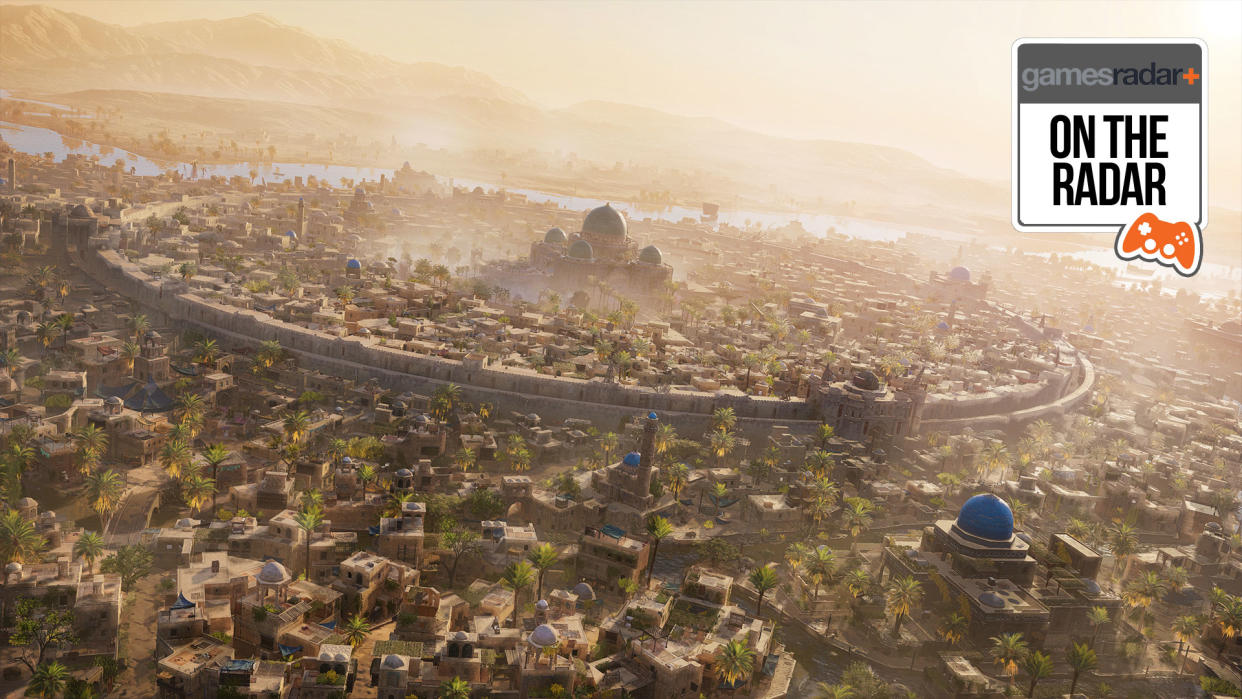
It's not often that video games can say that they're paving the way for historians, and yet that's exactly what Assassin's Creed Mirage is doing with Baghdad. Mirage is taking us to a 9th-century slant on the Iraqi capital, a time period that even dedicated scholars on the topic don't know that much about.
"This is uncharted. Nobody knows that time period really well," says Jean-Luc Sala, art director on Assassin's Creed Mirage. While Ubisoft has a strong history of recreating historical cities like Paris or London with the Assassin's Creed series, so little is known about Baghdad in the 9th Century the team was essentially starting from scratch. Sala laughs that historians actually wished the team at Ubisoft Bordeaux luck with their recreation, warning them that doing it well would be "problematic" because of the lack of information.
Paradise lost
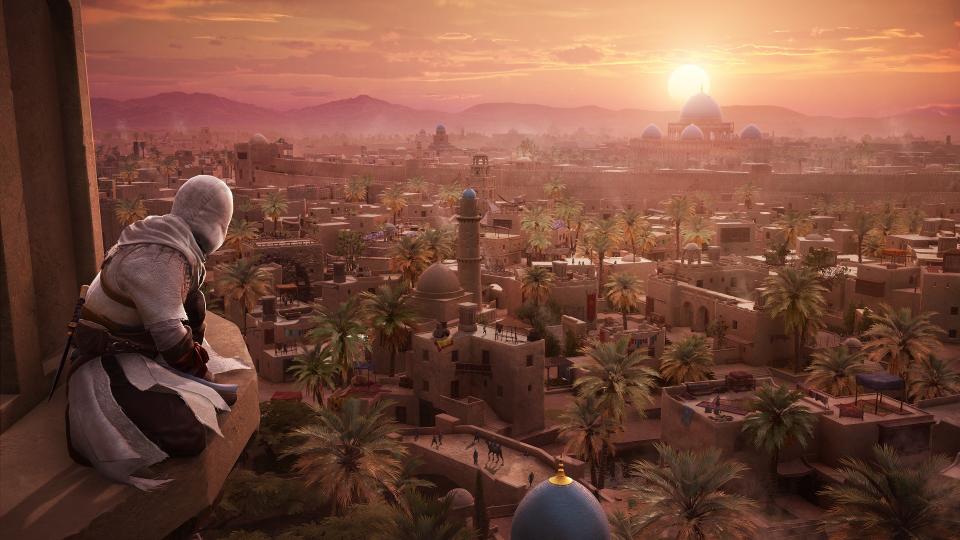
The main issue is that 9th Century Baghdad is a lost city, completely burned down in the 13th Century by the Mongols. Nothing remains of it today, and there's not a lot of literature on the city at that time that the team could use to start building Baghdad. But, that didn't put the team off – they knew it had to be Baghdad.
"When we realized the incredible story, size, and shape of the city, it would have been stupid not to go to Baghdad," says Sala. That's in part because it goes hand in hand with the team's drive to make this a more traditional, stealth-focused Assassin's Creed. The series started in the Middle East, and Sala says the team is "hoping Baghdad will bring back all the nostalgia and memories for our long-term players". But, it's also because the team was passionate about educating people on how important Baghdad was for the world at this point in time. "Not picking Baghdad as a playground would have been a mistake," adds Sala.
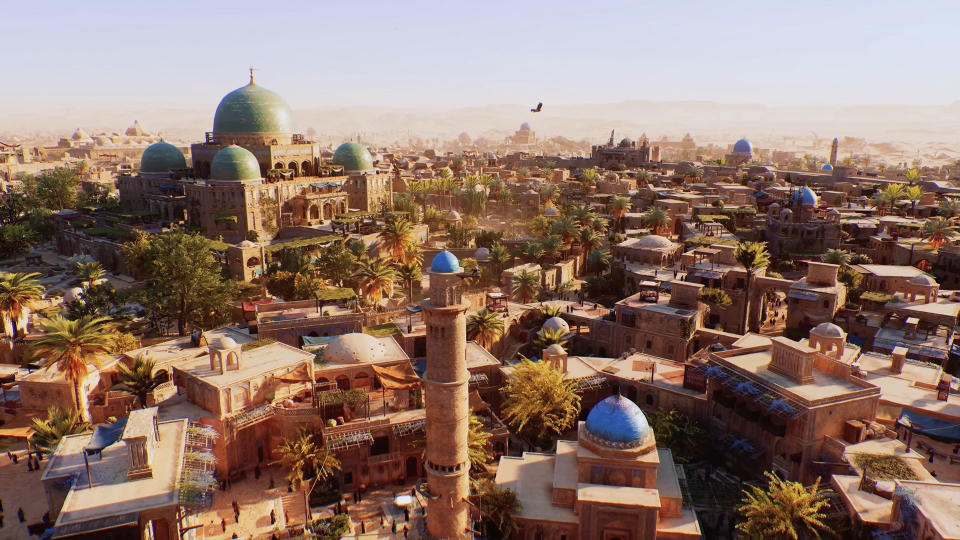
"It was a bit sad seeing that so many things happened in Baghdad back then but nobody knows about it," says Sarah Beaulieu, narrative director on Assassin's Creed Mirage. "This is a great opportunity to tell that story and show how Baghdad was, the people that lived there, and how they influenced the world that we know today because of their research."
"Our game is set in a period that's been rarely seen in entertainment – the Golden Age of Islam. It's an opportunity to celebrate the fact that it was a Golden Age," adds Sala. "One million people lived here then. At that moment in time, there were only three cities that could hold one million people. It was the center of the world back then, bustling with life, diversity, and scientific findings. At that same moment, continental Europe was in the Dark Ages struggling with Viking invasions," as no doubt many Assassin's Creed Valhalla players will already know.
On the Radar
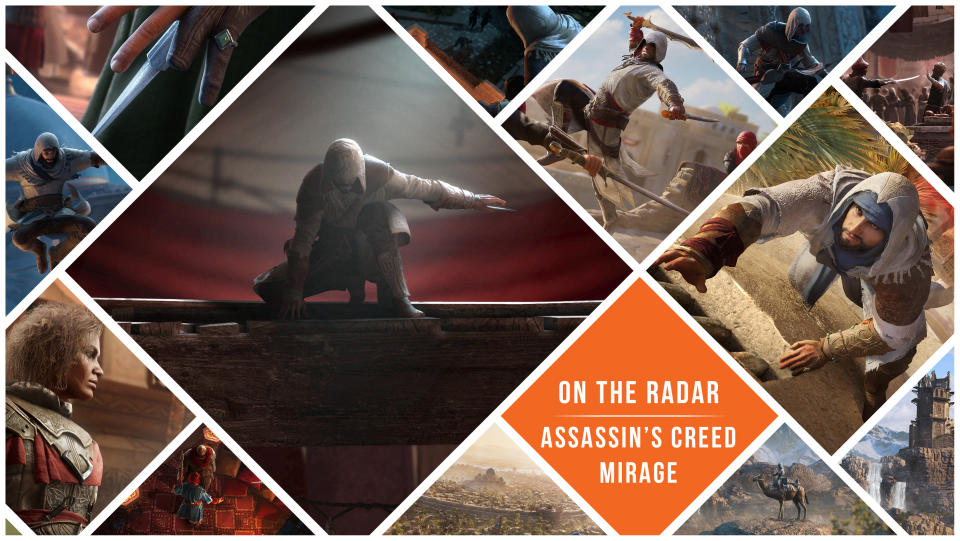
This exploration of Baghdad is part of our week of Assassin's Creed Mirage: On the Radar coverage
So Ubisoft Bordeaux stuck to its guns, working with historians and scholars around the globe to gather as much knowledge as they could to recreate the round city and its expanding empire. "The Baghdad you will visit is true to the references from archaeology and literature and descriptions of that time," says Sala. Baghdad at this time was the "heart of the Silk Road, which meant people from China to Spain were gathering in this one place, discovering one of the most famous cities of the world in that time, and writing about it. From these descriptions, we could start mapping out the place."
Building Baghdad
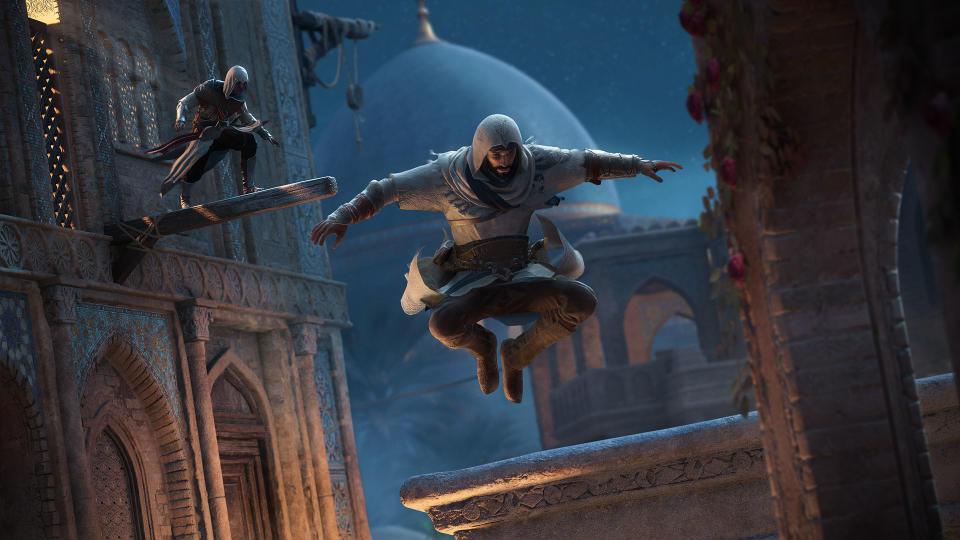
"This is still our vision, but nobody can say it's wrong," laughs Sala of taking the major leap in historical documentation that Assassin's Creed Mirage has achieved. "Historians are going to use our job to talk about the subject now. It's not 100% accurate, but this is the best it can show."
One of those historians that the team worked closely with when researching their recreation of Baghdad was Dr. Ali A. Olomi, a historian of Middle East and Islamic history who is Assistant Professor of History at Loyola Marymount University and host of Head on History, a podcast on Islamic intellectual history. When the team finally had the opportunity to show Dr Olomi around Mirage's Baghdad for the first time, Sala said he was "like a kid".
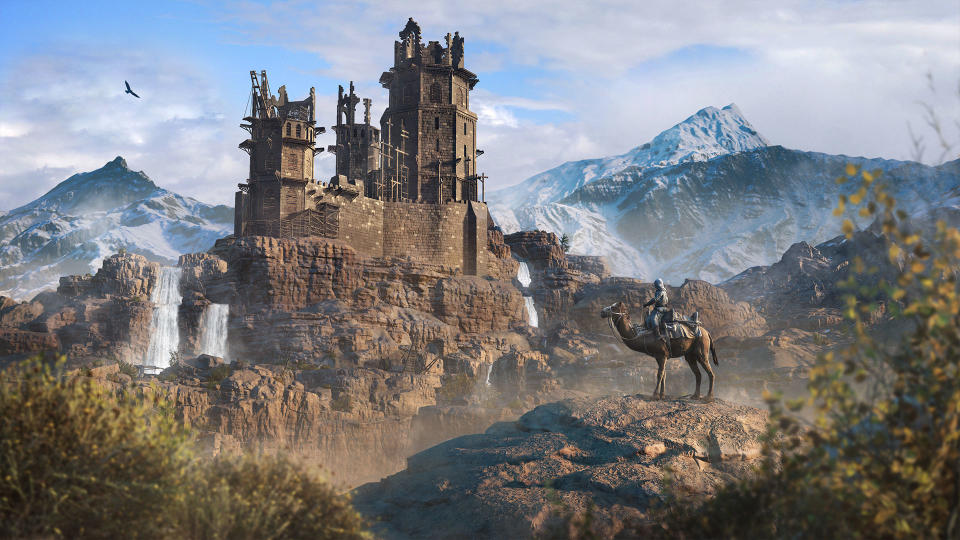
"It was not finished, not polished, but it was there," he adds. "This is Medieval Baghdad like you've never seen before and like he's never seen before. It was so emotional. He's spent his life studying that period and that city, and just being his tour guide was really emotional for both of us."
Bringing Baghdad to life at this point in time was also particularly powerful for Sala himself. He grew up on the other side of the Tigris River from Baghdad in Iran but had to leave when he was 11 years old because of the impending conflict. "For me, Baghdad just was a peaceful time of childhood, good memories, and stuff like that," he says, and the 9th Century version is closer to his memories of the city than we might see portrayed in movies or FPS titles of the modern day.
"This is still our vision, but nobody can say it's wrong"
"To then be telling a story and showing the Middle East in such a vibrant, positive light, and reminding people historically that so much art came out of there, so much science, [is amazing]," adds Lee Majdoub, voice of Assassin's Creed Mirage's hero, Basim.
"Ubisoft has done an amazing job with Baghdad, the background, the animation of it all. I've seen imagined pictures of Baghdad back then, but this is the ultimate vision," adds Shohreh Aghdashloo, voice of Roshan – Basim's mentor in Assassin's Creed Mirage.
Historic gameplay
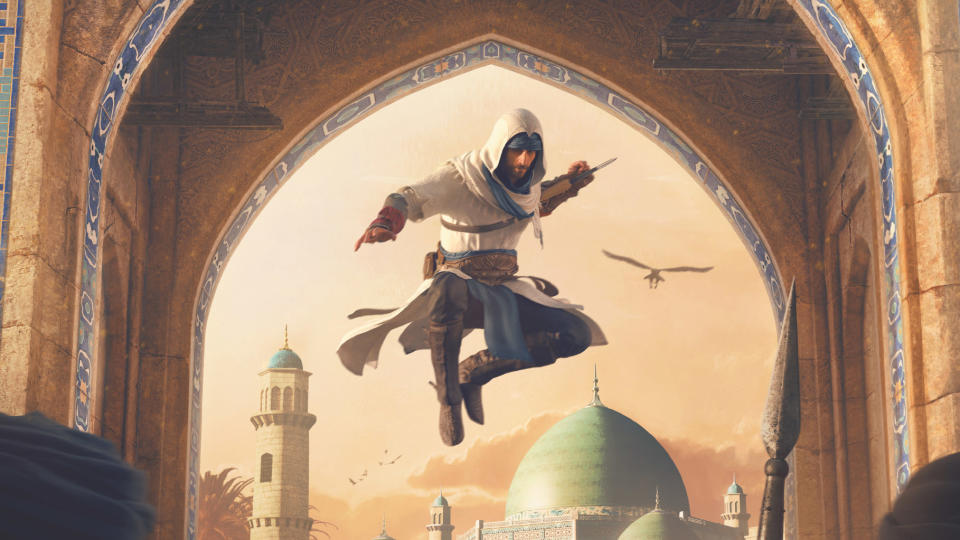
Of course, as much as this is a playground for historians to see the closest thing to 9th-century Baghdad we may ever get, it's also the setting of the next Assassin's Creed game. It has to function as a game too. Sala says there were several elements that the team needed to nail in order to get that balance right. It was everything from "the density of people, the rooftops, the parkour-able world, the richness of architecture, the light, the dust in the atmosphere, the colors, [and] the palette."
Thankfully, the freedom to design the city from relatively little means there is some room for creativity. While Ubisoft Bordeaux tried to be as historically accurate as possible, it had to create the black box areas that will make up the series of assassinations that form Assassin's Creed Mirage's core story. They each offer some variety as to whether they're more narrative-driven or more gameplay-focused, but they all form part of Baghdad itself.
"Before, the black boxes were really specific zones and very standalone," explains creative director, Stéphane Boudon. "Because of the investigation board, everything is very connected. We blurred the lines between the quest system and it's really an adventure where you don't have this lack of rhythm between two quests."
People make the places
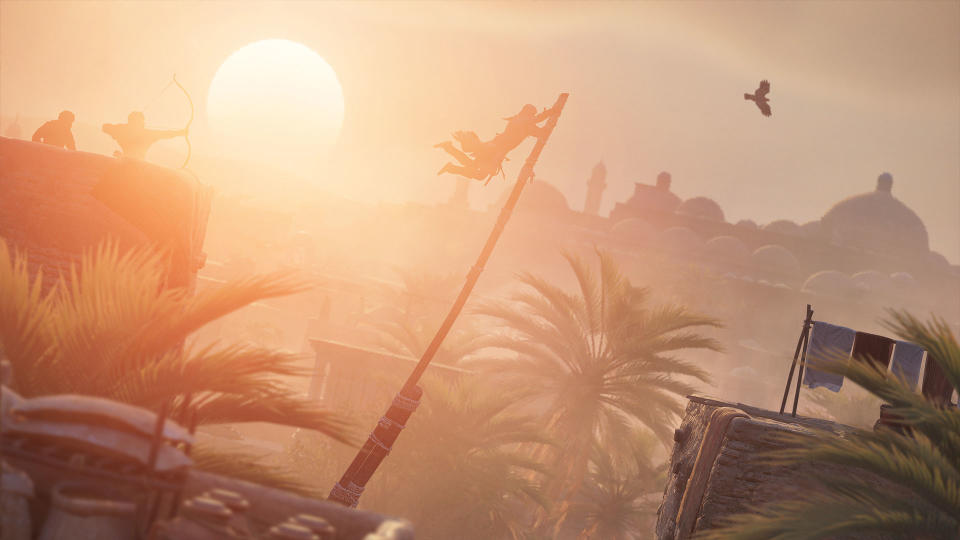
What that means is that what you do inside these investigation or assassination zones will have an impact on the entire city, including raising your notoriety level. They no longer take you elsewhere, these spaces exist within the wider city at all times. It's handy too if you want to take a detour for a bit, explore, do some more pickpocketing, or just discover what's happening in Baghdad. That includes finding smaller stories or side quests that really help bring Baghdad to life in a broader way than the main story alone can do.
"Having these tiny stories inside the city was really important. It's pretty systemic and we have plenty of world events, where it's just luck if you find one of them," explains Beaulieu.
"What was important for us is that all the people you have in the missions or on the streets bring the city alive in terms of sound," adds Boudon. "You can hear people through windows when you wander the streets, you can hear some conversations like that. The city is so diverse too, so you have different languages meaning it's always interesting to hear the people around you."
"It was multicultural, there's so much representation within Baghdad," says Majdoub. "I think a lot of people think it's predominantly a particular-looking person and Muslims, and that's it. But it's not, it was such a melting pot! Persians, Middle Eastern, Romans, Greeks, Chinese, and Indians all represented thanks to the Silk Road."
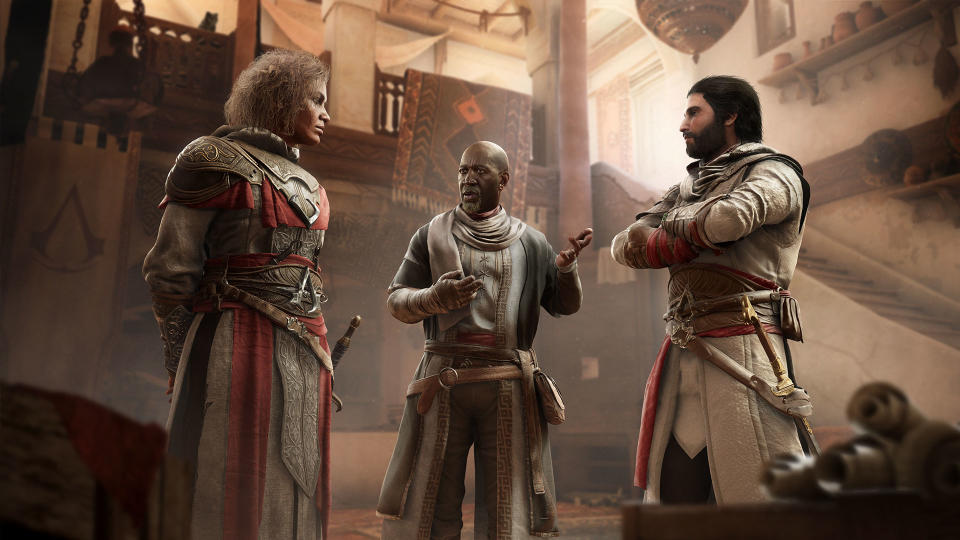
Like other Assassin's Creed games those locals will also include famous faces form this time period, with Beaulieu saying that the more the team discovered things about Baghdad the more excited the team became. "Nobody in the team knew anything about Baghdad in the 9th Century – it's all very blurry," she admits. "So we started digging into it, reading whatever exists – and there's not a lot of literature – and we were discovering things like the Banu Musa brothers who are now among the Hidden Ones providing the tools like Da Vinci was in [earlier Assassin's Creed games]."
She says they're one of the most interesting characters in Assassin's Creed Mirage, especially as they epitomize the importance of Baghdad in this era. They were inventors, translators, and scholars who made great leaps in areas like geometry, astronomy, mathematics, and technology. I certainly can't wait to see what they create for Basim and co.
It's that attention to detail and the realism that's really struck me when walking around Baghdad in Assassin's Creed Mirage. It feels alive, vibrant, and absolutely stunning. The passion of the Ubisoft Bordeaux team for making Baghdad not only a fun playground but also something that has the power to teach players about this city.
This feature forms part of our special On the Radar series celebrating the launch of Assassin's Creed Mirage. You can follow all our week-long coverage in our On the Radar - Assassin's Creed Mirage hub.
